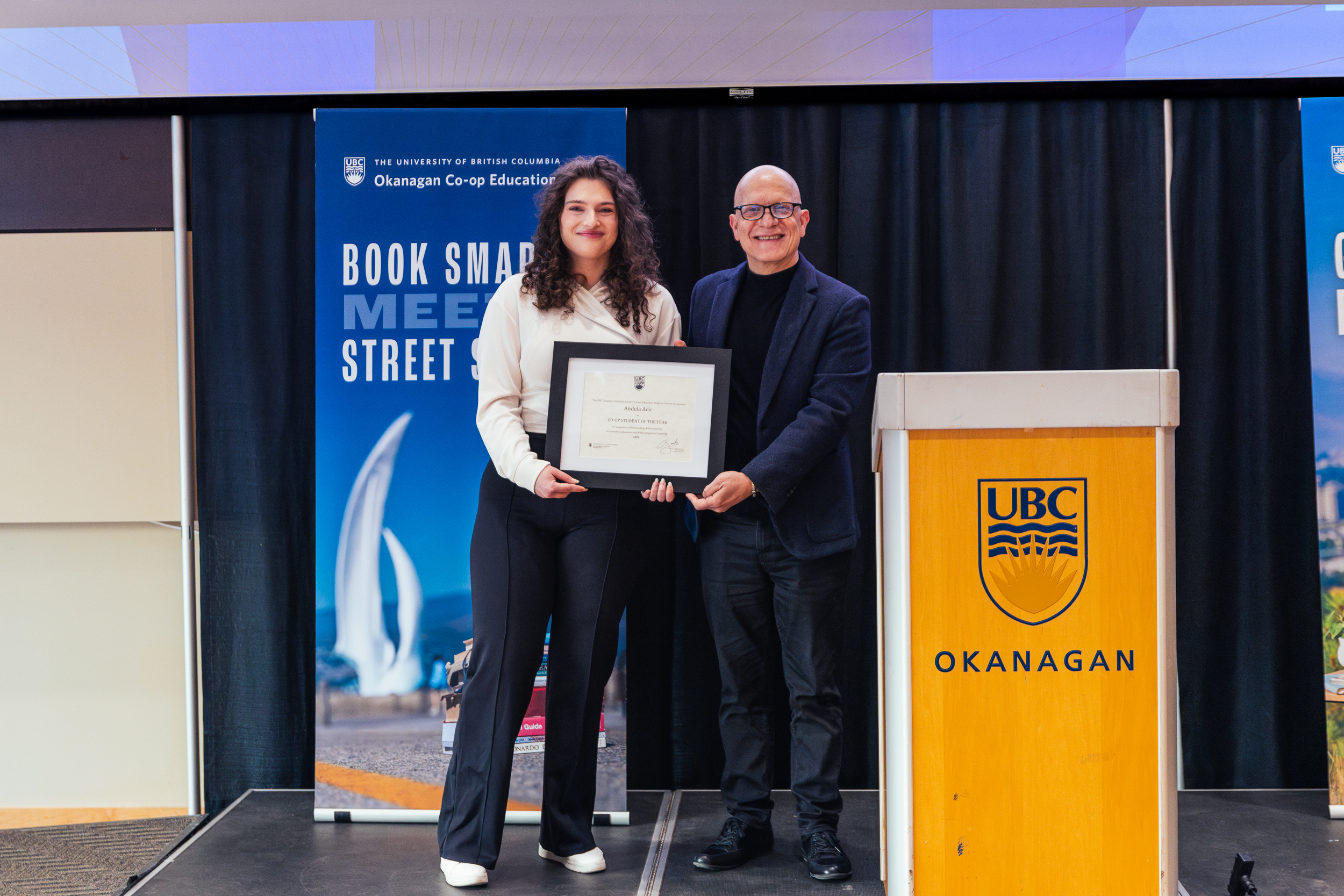Why Join Co-op?
What are the benefits of co-op at UBCO?
Co-op students benefit from diverse opportunities at many different employers from a broad range of sectors and workplaces including public organizations, non-profit agencies and large corporations, to small businesses and entrepreneurial start-ups.
Industry Work Experience
Build an impressive resume while gaining new skills and cultivating work experience.
Finance Your Degree
Co-op students are paid industry standard wages for all their co-op work experiences.
Diverse Career Network
Build a professional network of valuable employment contacts and lasting connections.
Access to employment supports
Access application reviews, interview preparation, and ongoing support throughout all terms of co-op experience.
Job Search Skills
Learn the latest in job search techniques including writing effective resumes and cover letters that stand out to employers.
Insight into Career Options
Gain awareness of specializations in your field, or even learn about careers that you never knew existed.
Did You Know…
- Co-op grads earn 15% higher starting salaries than non-co-op grads
- Co-op students are more likely to land more prestigious, better paying jobs than their non co-op peers
- 80% of employers surveyed say co-op and internship students are a source of new talent and potential future employees
- Graduates from co-op programs report better job-education match
Indigenous supports and resources
The Interdisciplinary Co-op Program is committed to encouraging and supporting Indigenous students to participate in co-op and work-integrated learning opportunities.
Student profiles
Discover stories from students who applied their expertise and learned even more by participating in co-op work experiences.
Initiatives and projects
From 2019–2022, the Interdisciplinary Co-op Education Program advanced program objectives of creating an interdisciplinary program grounded in reflective practice that seeks to create more equitable access to learners.
Throughout 2021–22, the Interdisciplinary Co-op Education Program integrated pre-employment and career readiness curriculum in close collaboration with the CTLT unit, creating a Canvas course: Co-op Learning Community.
This Canvas course is now a hub of resources, supports and interactive exercises to assist students from time of entry until completion of their UBC degree program.
Ongoing work continues to advance curriculum within the Co-op Education experiences for advancing student learning, development and reflection.
We recognize the need to continue to develop and ensure practices which create equitable and inclusive access to learning experiences for all students.
The recommendations in the report on Identifying Challenges, Creating Opportunities – Indigenous Students and Work-Integrated learning at UBC, 2020-2021 offer strong building-blocks as Interdisciplinary Co-op continues to advance these efforts.
We will continue to collaborate closely with the Indigenous Programs and Services department and all UBC Co-op programs in order to create equal opportunities and increased awareness and participation in these forms of experiential learning.
The Interior & Northern Work Integrated Learning Initiative (INWIL), in partnership with Thompson Rivers University and the University of Northern British Columbia, explores barriers to participation in work-integrated learning through consultation with industry leaders and small and medium-sized organizations within the Interior and Northern regions of BC.
This regional engagement encouraged collaboration and coordination to support small and medium-sized organizations in connecting with students, and supporting the growth of the regional economy through work-integrated learning.
Efforts continue in identifying student values and perceptions of workplace learning, leading to increased access and engagement of co-op experiences based regionally within BC.
Want to learn more about some of the initiatives that received BC Ministry of Advanced Education and Skill Development funding? Visit our blog.





